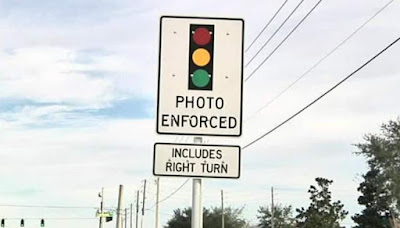Across the United States, city councils are beginning to question the value of their traffic enforcement partnerships with Verra Mobility, one of the largest providers of speed and red-light camera systems in the world. Once promoted as turnkey solutions for improving road safety and generating steady municipal revenue, these contracts are now drawing scrutiny over high costs, profit-sharing arrangements, and growing public resistance.
Why Cities Signed on with Verra Mobility
For years, Verra Mobility pitched municipalities on automated enforcement programs with little upfront cost. The company would install cameras at intersections or school zones, manage ticket processing, and handle collections. In return, cities shared a portion of ticket revenue with the vendor.
The appeal was simple:
-
Increased safety by reducing red-light running and speeding.
-
Revenue streams without requiring new taxes.
-
Operational outsourcing so cities didn’t need to hire staff to manage violations.
Many councils signed multi-year agreements, locking themselves into long-term partnerships.
Growing Concerns About Costs
While these contracts once seemed beneficial, costs have become a major sticking point. City leaders increasingly report that the vendor captures too much of the fine revenue, leaving municipalities with less funding than anticipated for public safety programs.
Key issues include:
-
High per-ticket fees charged by Verra Mobility for processing violations.
-
Escalating contract renewals with built-in price increases.
-
Unequal revenue splits, where cities receive less than half of each fine.
-
Legal challenges that have forced cities to refund millions in tickets, without reimbursement from the vendor.
In some cases, local governments discovered that after paying the company’s share, legal costs, and administrative overhead, the net revenue was negligible—or even negative.
Public Backlash and Legal Challenges
Opposition from residents has also pushed councils to reconsider. Critics argue that:
-
Automated enforcement prioritizes revenue over safety.
-
Camera placements often feel like “speed traps” rather than accident-prevention tools.
-
Errors in ticketing can place financial strain on drivers who may have limited ability to contest.
Several lawsuits across the country have challenged the legality of these programs, particularly around issues of due process, faulty calibration, and lack of officer oversight. In states like Texas and California, public pressure has led to bans or severe restrictions on automated enforcement.
Examples of Cities Reconsidering Contracts
-
Albany, Oregon: Council members have debated whether the city’s program justifies its costs after complaints from drivers and rising contract expenses.
-
Chicago, Illinois: While still under contract, leaders continue to face criticism over revenue-driven enforcement.
-
Small suburban towns in Florida and Colorado have chosen not to renew their contracts, citing high costs and resident dissatisfaction.
These examples highlight a growing trend of municipalities seeking to exit or renegotiate their deals with Verra Mobility.
The Political Shift Against Vendor Lock-in
City councils are also increasingly wary of vendor lock-in. Because Verra Mobility owns and operates much of the hardware and software infrastructure, ending a contract often means dismantling an entire enforcement program. This leaves municipalities in a difficult position—either renew at a high cost or risk losing all camera coverage.
Some councils are now exploring alternative models:
-
Running enforcement programs in-house with city-owned cameras.
-
Partnering with competing vendors offering more favorable revenue splits.
-
Transitioning from camera enforcement to increased traffic patrols.
Financial Transparency and Accountability
A recurring theme in council discussions is the lack of transparency in how much money vendors take versus how much is returned to the community. Open records requests have revealed millions flowing to Verra Mobility, while local budgets see only modest returns.
This imbalance has led to calls for:
-
Independent audits of traffic enforcement revenues.
-
Caps on vendor revenue percentages.
-
Shorter-term contracts that allow cities more flexibility to opt out.
What It Means for Drivers
For drivers, the shifting stance of city councils could mean fewer cameras and fewer automated tickets in the future. However, it may also lead to increased police presence on roads if councils replace cameras with traditional enforcement.
It’s also important for motorists to understand that outstanding tickets remain valid even if a city exits its contract. Fines, late fees, and license implications can still apply until legal action or legislation changes enforcement policies.
Conclusion: The Beginning of the End?
City councils across the country are increasingly skeptical of the long-term value of Verra Mobility contracts. While some programs have succeeded in reducing collisions, the high financial costs, legal risks, and community pushback are making them politically untenable.
As more municipalities demand transparency and explore alternatives, the once-booming business model of outsourced traffic enforcement may face significant downsizing. Whether this shift leads to safer roads—or just fewer tickets—remains to be seen.
LEON VALLEY, Texas – After receiving legal council, Leon Valley city leaders voted to write a letter supporting HB 1209. The bill looks to void any existing contract that goes against a law passed in 2019 that outlaws the use of red light camera programs in Texas.











